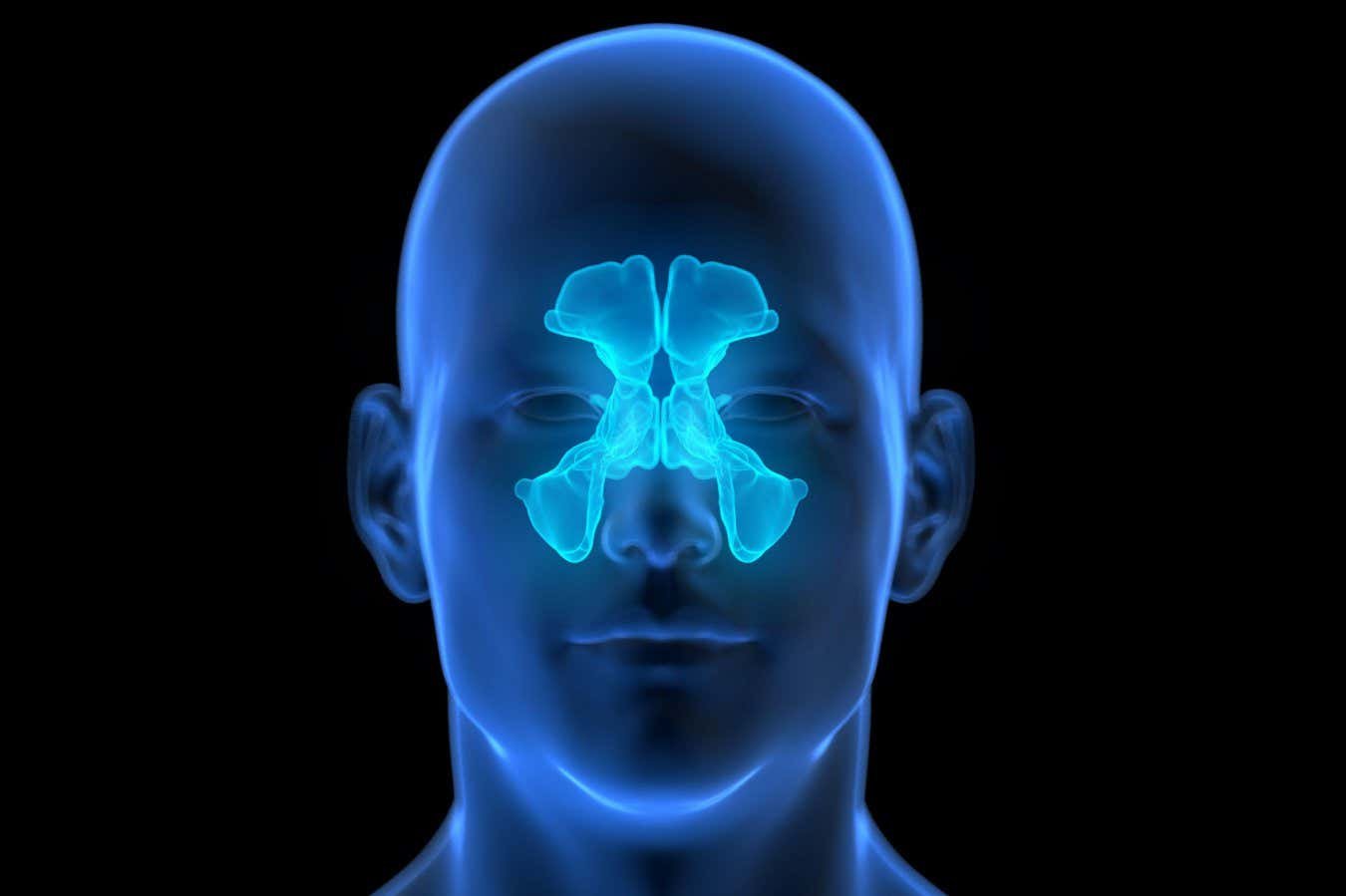The sinuses become inflamed in people with chronic sinusitis
Science Photo Library/Alamy
Surgery is typically a last resort for people with a chronically blocked or runny nose. But in some boxes, it may actually seem bets than the antibiotics that are readily prescribed for the treatment of the condition.
Chronic sinusitis affects approx. 9 percent of people around the world and occur when mucus production cavity-sine-arouse nose becomes inflamed. Common symptoms include a blocked or runny nose, a reduced sense of smell and facial pain, with these persistently for more than 12 weeks. The cause of the condition is applicable unclear, but may involve viral infections or a change of the nasal microbioma.
The first treatment line involves anti -inflammatory nasal spray and rinse saline through the nose daily. However, if the symptoms persist, doctors often prescribe a three-month run of the antibiotic clarithromycin. This is used for its anti-inflammatory properties rather than its bacterial-killing properties, says Carl Philpott at the University of East Anglia in the UK.
As a last resort, people can undergo an operation to expand the sinuses and remore any benign nasal growth or polyps that form and aggravate symptoms for approx. 5 percent of the boxes. Still, no previous study has directly compared surgery with antibiotics.
To fill this hole, Philpott and his colleagues recruited more than 500 adults with chronic rhinosinusitis. In studies, participants assessed the severity of 22 symptoms, such as facial bread and how running their nose was, with an average score of 55 out of 110.
The team then randomly assigned the participants to take eith a three-toning race of Clarithromycin, placebo pills, or review nose surgery. All participants also used nasal spray and rinsed their noses with salt water.
Six months later, those who took Eithromycin or placebo pills reported an approx. 10-point reduction in the severity of their symptoms compared to before treatment, a level that would noticeably improve their quality of life, says team member Claire Hopkins at King’s College. But when the effect was seen in both antibiotic and placebo groups, it was probably due to nasal spray and rinsing, she says.
Those in the surgery group saw an approx. 30-point improvement of their symptoms compared to before surgery, suggesting that doctors should offer this Institute of Antibiotics, says Hopkins.
However, there are important basement. About 80 per Hundreds of participants had nasal polyps, possibly because the study took place during the Covid-19 pandemic, and catching coronavirus can trigger the kind of inflammation that leads to polyps, Hopkins says. Further studies are needed to check where the results apply to those without polyps, who we know have different types of inflammation, she says.
Topics:
